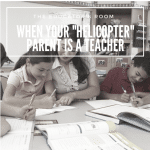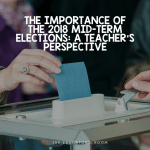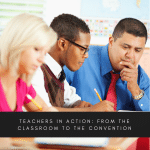“Ancora imparo. [fusion_builder_container hundred_percent=”yes” overflow=”visible”][fusion_builder_row][fusion_builder_column type=”1_1″ background_position=”left top” background_color=”” border_size=”” border_color=”” border_style=”solid” spacing=”yes” background_image=”” background_repeat=”no-repeat” padding=”” margin_top=”0px” margin_bottom=”0px” class=”” id=”” animation_type=”” animation_speed=”0.3″ animation_direction=”left” hide_on_mobile=”no” center_content=”no” min_height=”none”][I am still learning.]“
― Michelangelo, at age 87 in 1562
In the United States, students will spend 96 weeks or collectively about two years of their academic life in summer vacation days. There is tradition of “taking a break” associated with summer vacation, yet, there is a growing body of research on the adverse impact of summer vacation on student learning. Many researchers refer to the achievement damage done as the “summer slide,” especially for urban communities.
So what do some teachers do to counter this effect?
At the beginning of summer, students are sent home with work packets, reading lists, and other materials to counter the effects of what is commonly known as the “summer slide.” My school (grades 7-12) is no exception, and the objective for assigning this work is to provide students the practice in reading, writing, or math they need to maintain the skills they have developed during the school year.
The reality is that by mid-August, students and parents recognize they are in “crunch time,” and the summer work assigned as academic practice morphs into a contentious activity that looms large on the calendar. Parents remind/force/argue students to complete the work. Students may wait until the last possible moment to do schoolwork. Both parents and students see the work as an incursion into their summer break from school.
Meanwhile, on the teacher side, the knowledge that all those packets and reading responses will be submitted for assessment the first weeks back at school is daunting as well.
I believe I can safely say that no one-teachers, parents, students- likes summer work.
As an example, I recently received a note from a parent whose child is in enrolled in an honors level. This level is assigned more work to do, and she offered an impassioned plea that her children work hard to juggle their academics, athletics, jobs, etc. “They need a break,” she begged stating that they already can read and write well. “Why must we do this to students every summer?” she asked.
Must we? Do students who read and write well really need more practice? Do students need a break?
I wish I could make all stakeholders, including this one, happy by declaring that summer vacation should be an “academic-free zone”, but in my educator’s heart, I do not believe that students need a “break” especially when it comes to learning. I believe learning is ongoing, and those work packets and reading lists are designed at a minimum to keep students’ minds active. Granted, some of the assignments may be poorly designed, but they are based on a philosophy of maintaining skill sets.
While many students are fortunate to have the means to travel during summer vacation or indulge in firsthand experiences that benefit them academically, there are other students in their classes who do not. The work packets and summer reading equalize academic practice for all students during summer vacation.
Furthermore, learning individual responsibility to complete work assigned is another lesson at all grade levels. Students who choose other endeavors, namely athletics or jobs, must learn to be organized. In my experience as a teacher, the students who are the most successful are those who participate in multiple activities and learn to balance their academic responsibilities. How a student completes his or her summer work is also life lesson.
Consider again the 96 weeks that students have off for summer vacation during their academic career (K-12) because of a decision made in the mid-19th Century. Yes, I want students to have time to play and to travel and to relax, but why not have some assigned academic practice during their collective two years in the 21st Century that are afforded for summer vacation?
I am happy to concede that the summer work packets and reading lists are a poor substitute for authentic learning, and I will continue to look for ways to encourage student minds throughout the entire year, not just from September to June. In considering the note from that parent, I am thinking that interdisciplinary summer work might prove successful in reducing the amount for students and in sharing the grading workload for teachers.
Summer vacation, however, should not be an excuse to stop learning. The artist Michelangelo explained that he was “still learning” at the age of 87. Our job as educators is to encourage students to recognize they are always learning, year round. Whether there are work packets, reading lists, or other assignments, there is no summer break from learning.
A student’s mind should not be on vacation.
[/fusion_builder_column][/fusion_builder_row][/fusion_builder_container]





